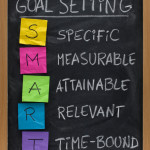 So I just started another business today. To make a very long story short, I am confident that the people I’ll be working with know how to set and achieve their goals. I’ve been a sail without rudders, and reaching most goals for me has been only an abstract ideal.
So I just started another business today. To make a very long story short, I am confident that the people I’ll be working with know how to set and achieve their goals. I’ve been a sail without rudders, and reaching most goals for me has been only an abstract ideal.
Of course I have been quite successful in some areas of my life. Being a professional symphony musician means I’m in an elite group on par with team members of NFL or NBA teams. (Without the megamillions pay, of course.)
But since I’m in the process of changing my life and my career, there are some skills I just don’t have yet. As I tell people all the time, the skills I needed to be a successful violinist are completely the opposite of those required to actually TALK to people. When I was studying the violin, I relied on my teachers to tell me exactly what I needed to do to be successful, and it’s exactly the same in the ‘civilian’ world. The concepts are the same; it’s just the skills that are different.
 Musicians are really good at repetitive practicing and prioritizing what has to be learned. I never realized that I really do know how to set goals. I do it all the time. Most of the productivity and personal development gurus use the letters SMART to explain goal setting in an easy to remember way. It’s like this –
Musicians are really good at repetitive practicing and prioritizing what has to be learned. I never realized that I really do know how to set goals. I do it all the time. Most of the productivity and personal development gurus use the letters SMART to explain goal setting in an easy to remember way. It’s like this –
S – Specific
In music, I know that I need to learn a passage at a specific tempo. There is usually even a metronome marking. Can’t get more specific than a beep-beep-beep-beep to keep you on track. Goals must be specific in order to be attainable. In sales, a good specific goal is to talk to X number of people today. A non-specific goal is “I need to be more social.” If you can answer who, what, when, where, and why, it’s probably specific enough.
M – Measurable
Here again, that damned metronome comes into play. Maybe that’s why music and math go together so well. Ticket sales targets, budget targets, athletic scores – these are all measurable. Where would baseball be without all those statistics? You have to be able to measure your progress to know if you are on track to your goal.
Oh, and it helps to have someone to whom you are accountable. Like the scale at a Weight Watchers meeting. You know the drill.
A- Attainable
Ha! I probably shouldn’t be writing about this, but in the music world, unless you are Yo Yo Ma or Jascha Heifetz, some things just aren’t attainable. You always have to live with a certain degree of failure. Even so, if you give yourself enough time, and with enough effort, you can come close.
I remember the first time I tried to learn the first page of Strauss’ “Don Juan”, which is a standard audition excerpt. Early 1980’s. What a joke! Now? I can play it, although there will always be room for improvement in my mind. Yes, it’s mindset. And after a while, your mind can be your best friend or your worst enemy when it comes to designing an attainable goal. This is where personal development comes in. You really can GROW into your goals.
R- Realistic
Are you able to reach this goal? Are you willing to put in the work to reach this goal? If not, then it’s not a realistic goal for you. I can desire all I want to be a tall Swedish runway model, but it just ain’t gonna happen no matter what I do. But I can train for and complete a marathon.
The real trick here is that you don’t want to be too realistic. After all, the purpose of having goals is to stretch your wings and get out of your comfort zone. Find the balance.
T- Timely
You have to give yourself a deadline or a timeframe to complete your goal. I’m pretty good at that, since every concert is a deadline. Giving yourself a time frame helps your subconscious to start thinking creatively to help you reach your goals.
So there you have it – steps to setting goals. I’ll keep you posted on my goal setting for my new business, and how good I am at reaching those goals. In the meantime, I’d love for you to sign up for my free report, just that-a-way——->







